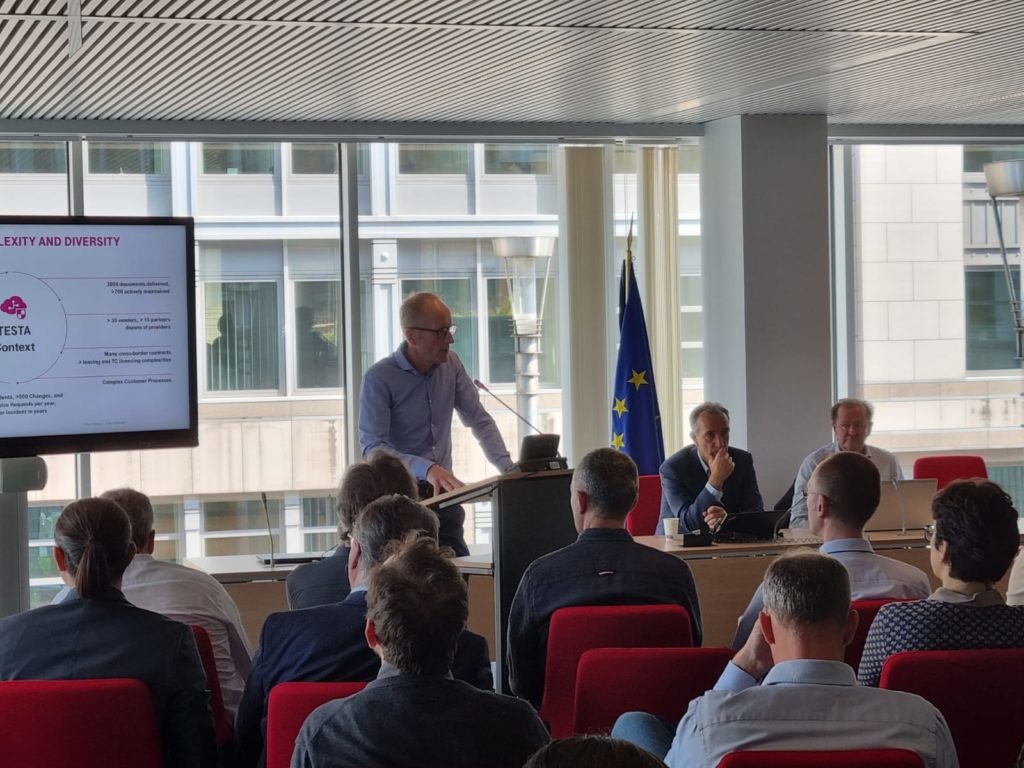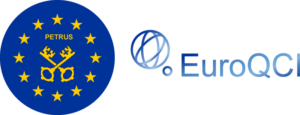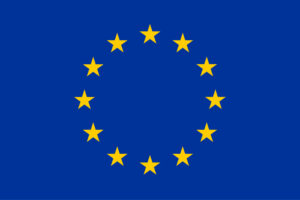The EuroQCI will be a European secure quantum communication infrastructure spanning the whole EU, including its overseas territories. It will be an integral part of IRIS², the new EU space-based secure communication system. The European Commission is working with all 27 EU Member States, and the European Space Agency (ESA), to design, develop and deploy the EuroQCI.
Petrus, funded by the European Commission, is the Coordination and Support Action for EuroQCI.
Petrus is led by Deutsche Telekom in conjunction with Airbus, Thales and AIT. On 7th of June Petrus hosted in Brussels, at the European Commission’s premises, a workshop that brought together representatives of EuroQCI Projects from the EU DIGITAL programme. These key EuroQCI stakeholders were invited by the European Commission to ‘Provide input for the next phase of EuroQCI and beyond’
The event was attended by more than 60 people from all over Europe.
The workshop focused on activities that are critical to be added to the roadmap for the implementation of EuroQCI over the next coming years, with a clear focus on the following topics
The outcomes of the workshop will provide important input and contribute to shape the European Work Programmes for 2024 – 2025 and beyond and help to meet Europe’s Digital Decade target of being at the cutting edge of quantum capabilities by 2030.



This project has received funding from the DIGITAL-2021-QCI-01 Digital European Program under grant agreement no. PETRUS 101091719.
Funded by the European Union. Views and opinions expressed are however those of the author(s) only and do not necessarily reflect those of the European Union or the European Commission. Neither the European Union nor the granting authority can be held responsible for them.